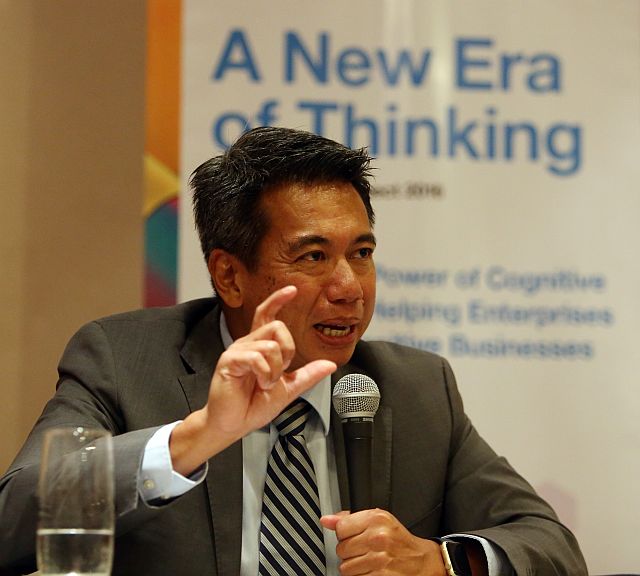Gov’t must address cyber security threat to business

Luis Pineda, IBM Philippines president and country manager, answers question from the media during a round table discussion held at the Marriott Hotel in Cebu City on Tuesday. (CDN PHOTO/LITO TECSON)
The global trend of digitalization has changed the way business is done, but it also gave rise to greater cyber security risks on enterprises, according to the top executive of the leading information technology company in the Philippines.
Luis Pineda, IBM Philippines president and country general manager, said that only 17 percent of the enterprise and government sectors worldwide are cyber secured while 27 percent are unprepared.
“When companies saw the need to digitize, they also saw the increase in cyber security threats,” he said in a media roundtable on succeeding in the age of disruption on Tuesday.
The remaining 56 percent already have developing capabilities, he added.
Pineda said cyber crimes are a threat that cuts across the globe with no industry immune.
He said he hoped the newly created Department of Information and Communications Technology (DICT) will be able to help address the growing cyber security threats to businesses in the country.
Although the agency is still setting itself up, he said he is optimistic that he will get to see the DICT get the work done.
He added there is a need for a collaborative sharing of information to combat these threats and keener oversight on the part of government.
Pineda cited banking and finance, telecommunications, retail, and manufacturing as among the industries largely concerned with cyber threats and security since most businesses in these fields tap technology for their operations.
In the case of the Philippines, Pineda said the unpreparedness of private and government sectors may be attributed to the lack of experts in the field who are based in the country.
He said this was the reason why most companies hire foreign experts to deal with security threats within their systems.
Pineda said the Bangladesh bank heist in February this year was a wake up call to banking and financing institutions not only in the Philippines but worldwide to up their security systems.
Instructions to steal $951 million from the central bank of Bangladesh were issued through the Society for Worldwide Interbank Financial Telecommunication (SWIFT) network.
Hackers were able to successfully issue five transactions worth $101 million and withdrew from the Bangladesh Bank account at the Federal Reserve Bank Of New York, $81 million of which were traced to the Philippines.
Pineda also cited the “Comeleaks,” an event that cast doubts on the reliability of the Commission on Election’s data security system after hackers were able to steal voter information from their database and published it on a public online domain.
This happened just a few months before the May 9 elections this year.
In a 2013 survey conducted by IBM on C-level executives, Pineda said security concerns “made just a blip on (the) radar screens” of those in the C-suite.
“Today, the majority of CxOs, irrespective of their role or the technology they selected, think IT security is the top risk,” he said.
Cybercrime is costing the global economy more than $445 billion annually, and banks remain firmly in the crosshairs with over 20 million financial records breached in 2015.
According to IBM, these data breaches cost financial institutions $215 per stolen record on average.
Disclaimer: The comments uploaded on this site do not necessarily represent or reflect the views of management and owner of Cebudailynews. We reserve the right to exclude comments that we deem to be inconsistent with our editorial standards.
